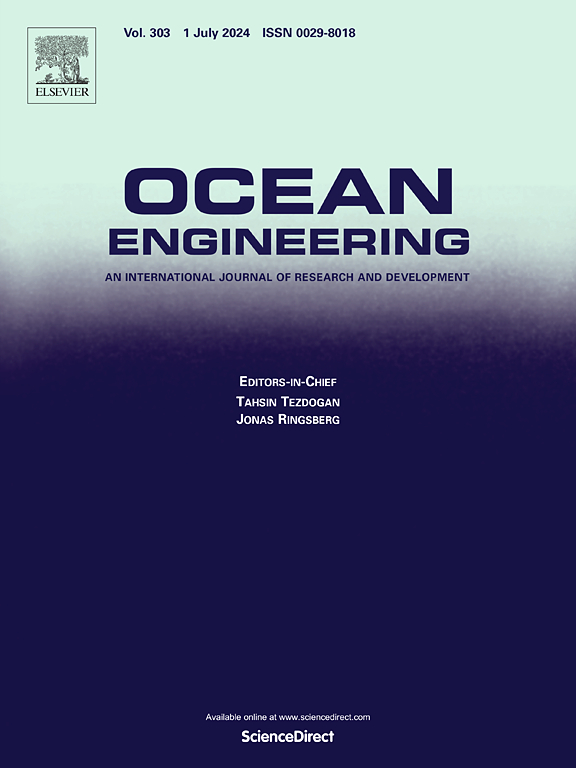Experimental and empirical study of wave attenuation by an immobile dry-type vegetative floating island
IF 4.6
2区 工程技术
Q1 ENGINEERING, CIVIL
引用次数: 0
Abstract
This paper presents a systematic experimental and empirical investigation of the wave-attenuation effects of a stationary, dry-type vegetative floating island. In the experimental study, data were collected to analyze the effects of immersion depths, spatial coverage, and compositions of the matrix medium of a dry-type vegetative floating island, along with changing wave conditions. These data were used to evaluate the effects of the floating islands on the non-dimensional coefficients for wave reflection, transmission, and energy dissipation. For the empirical modeling study, dimensional analysis identified the primary non-dimensional parameter groups affecting wave attenuation within the matrix medium of the vegetative floating island. Empirical functions were derived through regression curve fitting to express the relationships between key influencing parameters and to create an empirical model applicable to wave attenuation by dry-type vegetative floating island systems. Based on this empirical model, the effects of the material shape parameters of the matrix medium on wave reflection, transmission, and energy dissipation were examined, including the modifications and analysis of the non-dimensional material shape parameters of the matrix medium. In addition, an algorithm was proposed to account for the conservation of wave energy by modifying the empirical model coefficients for wave reflection, transmission, and energy dissipation.
求助全文
约1分钟内获得全文
求助全文
来源期刊

Ocean Engineering
工程技术-工程:大洋
CiteScore
7.30
自引率
34.00%
发文量
2379
审稿时长
8.1 months
期刊介绍:
Ocean Engineering provides a medium for the publication of original research and development work in the field of ocean engineering. Ocean Engineering seeks papers in the following topics.
 求助内容:
求助内容: 应助结果提醒方式:
应助结果提醒方式:


